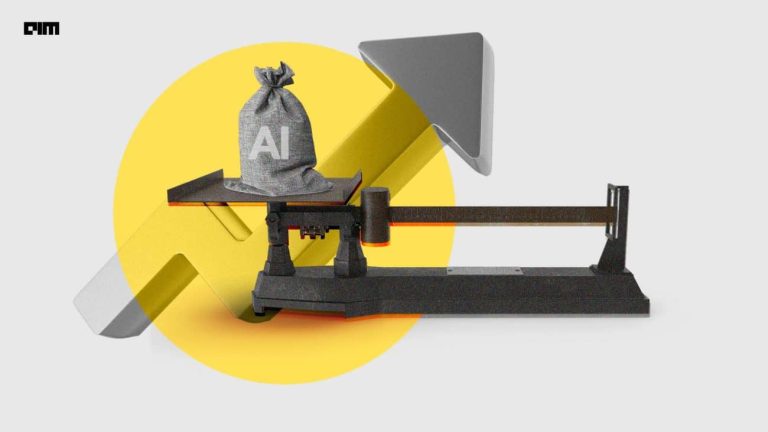There is no escaping the march of artificial intelligence which has reached a point where the jobs fallout will be felt across every role in any industry sector in the coming years. Report after report confirm the worst fears that automation and AI are the most disruptive technologies upending 5.1 million jobs by 2020 in 15 global leading economies. The startling revelation came from World Economic Forum that further stated that the overall impact of AI over the next five years could displace 7.1 million jobs to redundancy, automation or disintermediation.
AI Rocks Philippines BPO Industry – All Set To Lose The Voice Touch
Now the raging debate has reached the parliamentary halls of Philippines, which is reeling from massive layoffs in the thriving BPO industry due to the rise of AI and robotics. With companies rushing to safeguard their economic interests by investing in automation, the country is now grappling with policies to ease the transition to higher value chain, upskilling the workforce in coding and analytics and developing new knowledge areas in engineering. The Philippines Government is reportedly rattled by a paper by International Labour Organization that states that 49 percent of Philippine employment risks automation in a few decades.
Philippines is one of the top voice-based Business Process Outsourcing (BPO) countries in the world and replaced India to capture the number #1 spot back in 2011. According to PwC, BPOs and Shared Service Centers haven’t just sprung up in the National Capital Region but also reached other regions such as Visayas and Mindanao. The BPO industry in Philippines employs more than 1.3 million, out of which more than 900,000 work in call centers.
However, the race for automation has slowed the growth down to 9 per cent till 2022, revealed Rey Untal, president and chief executive officer of the Information Technology and Business Process Association of the Philippines (IBPAP) earlier this year. Untal added that AI will potentially displace 40,000 to 50,000 “low-skilled” or process-driven BPO jobs in the next five years. Another doomsday prediction estimates that 1.3 million Filipinos in the BPO sector will be displaced over the next two years by AI specifically being developed for BPOs. As a sign of these troubled times, IBM Philippines exited the voice market early in 2013 as demand from other international clients slow down.
Did The Missed Software Revolution Bring In Early AI Doom?
Today the country is facing a potential AI and its readiness to battle the onslaught of automation is questioned by stakeholders and Filipino workers itself. Known for its considerable talent source, business-friendly environment, language fluency and investment initiatives the country lacked a high level of expertise in engineering, IT and sciences.
- With the fast-growing tech sector demanding new skills in data and analytics, mobile app development the country is struggling to fill gaps in these areas
- There is a pronounced lack of technopreneurship and brain drain only makes the situation worse
- The country is a top outsourcing destination for on-voice BPO services but failed to upskill workforce in ITES, KPO and other IT services
- The education system, colleges and universities which falls under the Commission on Higher Education are not focusing on imparting the right skills
- Out of a population of more than 100 million people, the country has only a handful of AI-savvy engineers
Given such a glaring skill gap and lack of IT backbone, was an AI doom impending. While the country played it safe and rested on the $23 billion sector on-voice BPO sector, it failed to develop tech-related expertise in other upcoming areas. The country also failed to mark a shift from service-oriented economy to developing their own products. Analysts believe language fluency will not salvage the country from a coming AI peril.
Why Philippines Enterprises Are Embracing Automation
According to Angelo L Basuan, Consulting Senior Manager at PwC Philippines, Robotics Process Automation (RPA) has taken the Philippines market by storm and the adoption by companies is part of the global move to become a digitally-enabled enterprise. While on one hand RPA is fueling job losses, it is boosting growth and productivity. Citing results from a project where selected processes from HR, Finance & Accounting and Marketing were automated, Basuan revealed the outcome was mind-blowing.
The company saw tangible benefits in the form of:
- ROI of 200% over five-year
- Reduced processing turn-around time up to 40%
- An error rate from 0% to 0.05% besides greater compliance and control.
Besides these tangible benefits, RPA also gives a digital workforce that can work 24*7. Another great upside is that an RPA pilot projects can be completed in five to 10 weeks depending on the complexity of the process being automated. “The processes that fit well with RPA are those that are transactional in nature or routine with few or no human judgment needed,” noted Basuan.
Tasks such as Enterprise Resource Planning (ERP) and CRM that involve generating and validating a report, automatically saving the results and dispatching it to the customer over email are up for automation. In customer facing services, chatbots outfitted with NLP capabilities can respond effectively to customer queries. These software-configured robots that perform repeatable, computer-based tasks are threatening Philippines workforce. Despite the Government’s repeated assurance of retooling the workforce and moving up a higher value chain, the digital disruption is certainly going to rock the customer service industry in Philippines.
Government Braces For The AI Impact – But Can It Turn AI To Its Advantage?
AT Kearney report sums up the island nation’s long established proven business model which is now going to be shaken up by the impact of automation. The report cites how automation and RPAs are wading into the once thriving and labour-intensive BPO sector, replacing routine tasks with cutting-edge algorithms to significantly improve the productivity of back-office work. “While technological advancement is necessary to sustain growth and dynamism in the market, it can also seriously undermine opportunities previously available in the sector where basic language and literacy were sufficient skills for a majority of workers,” the report indicates.
Amid rising fears of job losses, leading policymakers are now raising questions over the Government’s preparedness to upskill the country’s workforce. As a first of its kind initiative, Philippines’s Department of Science and Technology (DOST) has been enlisted to develop an AI program in the country to improve country’s manufacturing sector.
Among other things, AI has been listed as a part of the emerging technologies in the Philippine Development Plan 2017-2022, and the government has committed to participate in collaborative research and development activities and investing in infrastructure buildup.
The government has also come out with strong commitments to retool the workforce and foster technical skills in analytics, mobile applications and cloud computing. Philippine’s IBPAP is taking steps to work with the academia and government to prepare the workforce for the required skillset. The upside is that the country is committed to move its talent up the value chain and become more conversant in emerging technologies. The downside is does the country have the right infrastructure and capability to take advantage of the opportunities presented by AI. In the wake of this scenario, the country has a long way to go before it could use AI to its benefit.






















































































